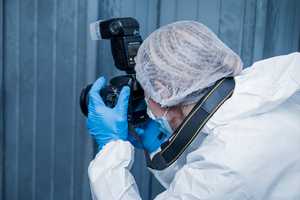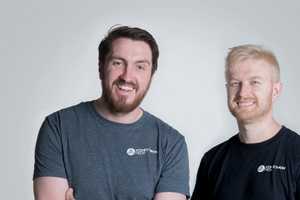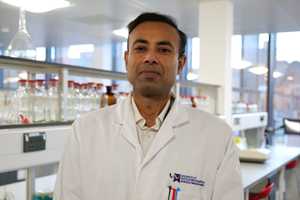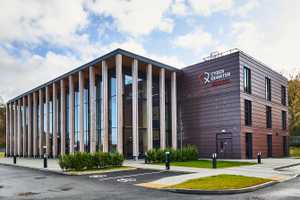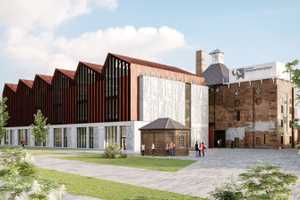Hailing from Zimbabwe, as a child Rodney Moulder could never have guessed that he would one day live in Hong Kong, overseeing huge construction projects and benefiting millions of lives.
With an engineer father and a desire to put his talent for maths into practice, Rodney moved to the UK to pursue his ambitions and graduated with a degree in quantity surveying in 2000.
Rodney said: “I always wanted to do something related to engineering, but not the electrical engineering that my dad did. I always had a passion for fixing things and that was what I always felt I would head towards, but then I started to get fascinated by structures and buildings.
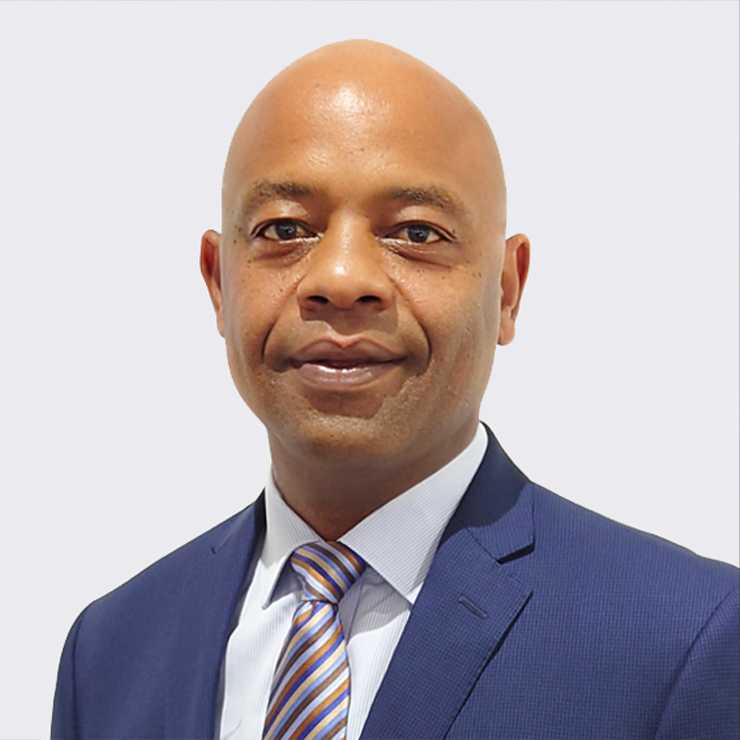
“That’s how I fell into construction and quantity surveying.”
And so began a path that would take Rodney from a degree in England, to helping orchestrate some of Hong Kong’s most significant infrastructure projects.
Rodney stayed in the UK after his quantity surveying degree and began his career with the consultancy business Turner and Townsend in Birmingham. While he worked, he studied part-time for a Master’s degree in construction project management at the University of Wolverhampton and became chartered with the Royal Institute of Chartered Surveyors (RICS) towards the end of 2003. As he upskilled and developed his expertise, the scale of the construction projects he worked on grew.
Rodney continued: “I worked in different sectors and markets in the UK: science, health, education, and infrastructure. I’ve had the benefit of being able to work with a diverse portfolio of clients and construction projects, and I think this put me in really good stead for where I’ve ended up now in my career.
“One project that springs to mind which still has a soft spot in my heart is the multi-million-pound biochemistry building I worked on for the University of Oxford, which was a centre for world-class research and teaching of all aspects of biochemistry.
"The actual construction of that building was quite complicated. We had to build within an extremely restricted campus, top-down construction and incorporate a number of anti-vibration solutions due to the high sensitivity of some of the research to be carried out. That project actually won a RIBA industry award.”
In contrast, a much smaller education project he worked on in the UK was to extend the sixth form buildings of a Birmingham school. Rodney was required to calculate how to complete the project to a high standard while on a very tight budget, and he was so successful in doing so that the school requested that he sit on the governing body as a co-opted governor. This ability to succeed at projects of any level and to cultivate relationships with those he worked with enabled Rodney to climb his way up the ranks of Turner and Townsend. While in England, Rodney worked with global, sometimes FTSE 100 companies, including the Royal Bank of Scotland, Santander, Apple, and Google.
…we came out to Hong Kong for a week and just fell in love with the place. My view was that if I didn’t do it then, I’d probably never do it in my career, so we took a punt.
Rodney rose from manager to director, and having such a talent for his roles it made sense that when a new branch opened he was offered a position there. However, he never expected his next opportunity to take him from England across the globe to Hong Kong.
Rodney explained: “The company bought a traditional quantity surveying practice in Hong Kong in 2013, and I guess they wanted someone they could trust who would be able to help support the growth and development of the business.
“It was a big decision for my family. I had two young kids at the time – one six months old, the other five years old. But we came out to Hong Kong for a week and just fell in love with the place. My view was that if I didn’t do it then, I’d probably never do it in my career, so we took a punt.”
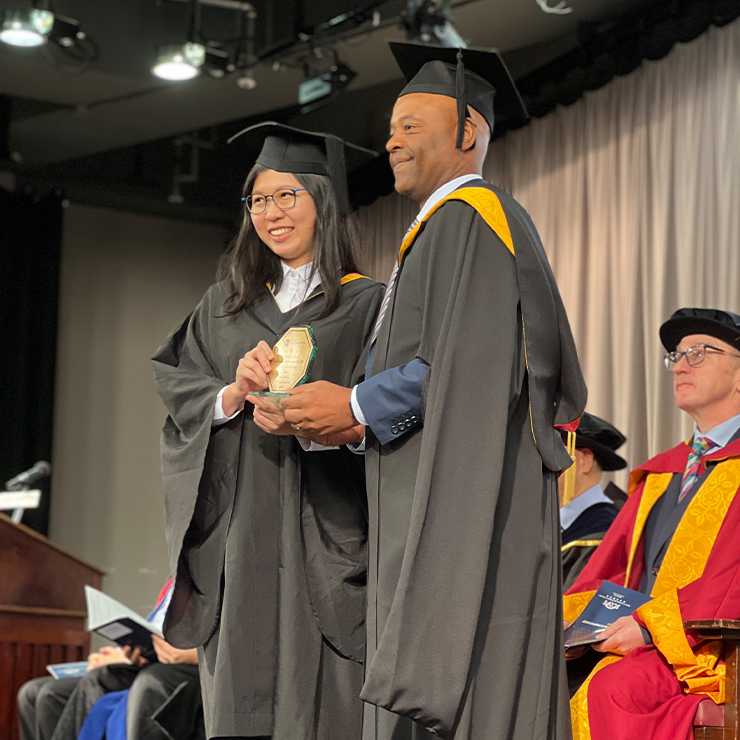
The culture shock took some adjusting to, but thankfully the language was rarely a barrier. Having grown up in Zimbabwe and worked in England, Rodney already spoke English and the African language Shona, as well as understanding Ndebele, but admits that he only “gets by” in the Chinese language Mandarin. Most of the business Rodney does is conducted in English, meaning that he rarely needs a translator, and having some basic language skills tends to be enough to get him through.
At first, Rodney assumed his family would stay for two or three years and then return to the UK, but now, almost nine years later, they continue to live in Hong Kong. When he first arrived, he looked after a single office, but his remits have expanded to include several more.
One key project Rodney was involved in was the expansion of Hong Kong International Airport, which is the world’s busiest cargo gateway and one of the world’s most-used passenger airports.
He said: “Some projects are there for the community’s benefit, and the airport was great to work on because of what it does in terms of enabling people to travel.
“I was involved in the early stages of the project, which will see the airport almost double in size. The project involved reclaiming 650 hectares (6.5 million square metres) from the sea, the construction of a new terminal, and turning the airport from a two-runway system to a three-runway system.”
Rodney’s role has taken him beyond even Hong Kong to: work on a major rail project in Kuala Lumpur, Malaysia; conduct project and oversight in Taiwan, Taipei and Taichung Bay, for two years in 2017; become responsible for projects and oversight in Shenzen, China; and to have similar responsibilities in Macau for five years in 2017.
Today, in his current role as regional director and key client lead for one of the largest global financial institutions, Rodney works with clients with a diverse portfolio in projects that range across retail, residential, offices, data centres and more. He has a team of 45 people, each of whom has their own challenges, and spends his time mentoring and supporting team members both in and out of their roles, as well as delivering the objectives that the company’s clients are trying to achieve.
As a University of Wolverhampton alum, Rodney kept in touch with some of his lecturers, one of whom was Dr Paul Hampton.
Rodney said: “While I had been in touch with Paul Hampton, I’d never spoken to him about my relocation to Hong Kong. But he actually turned up at our office to discuss whether there was anything that the University of Wolverhampton and [university partner] CityU SCOPE could do to collaborate with industry partners. This reignited my relationship with Dr Paul Hampton.
“I’ve supported CityU since then, doing things from a Quantity Surveyors International perspective and supporting the university where they’ve created new courses that have needed approval from the local vocational institute.”
The ongoing relationship shared between Rodney and the university has benefited both sides time and time again, demonstrating the value Wolverhampton offers its alumni many years after graduation.
Rodney said: “We have a number of graduates from CitySCOPE who have done an internship with us first, and then later when they graduate, we’ve taken them on. We’ve also had staff who joined our business as non-cognitive graduates, but who want to get qualified formally, so they study an RICS-accredited course at the university.
“It’s a two-way thing, and we as a business have benefited from that relationship through the great talent that has subsequently joined our organisation.”
Having worked on huge projects in the UK, Hong Kong, Malaysia and beyond, Rodney has impacted infrastructure and the community’s lives for the better across the world. He is a committee member for the Hong Kong General Chamber of Commerce, a member of CityU SCOPE’s Industry Advisory Panel, a special advisor for the Hong Kong chapter of Quantity Surveyor’s International, an organising committee member for the Royal Institution of Chartered Surveyors, and an affiliated member of the Wolverhampton Alumni Association (HK).
While Rodney became qualified as a quantity surveyor first, he praises his time studying at the University of Wolverhampton for teaching him the importance of the “softer side” of his career.
He said: “One of the things I find with young graduates nowadays is sometimes they come out of university highly skilled, but maybe universities need to put a little bit more focus on the softer stuff: the communication and the stakeholder management side of things.
“You can go off and deliver a project as well as you can, but if you’ve managed to alienate your customer, your clients, that’s all they’ll remember you for, right? That’s why there’s a lot I took away from my time at the University of Wolverhampton.”







